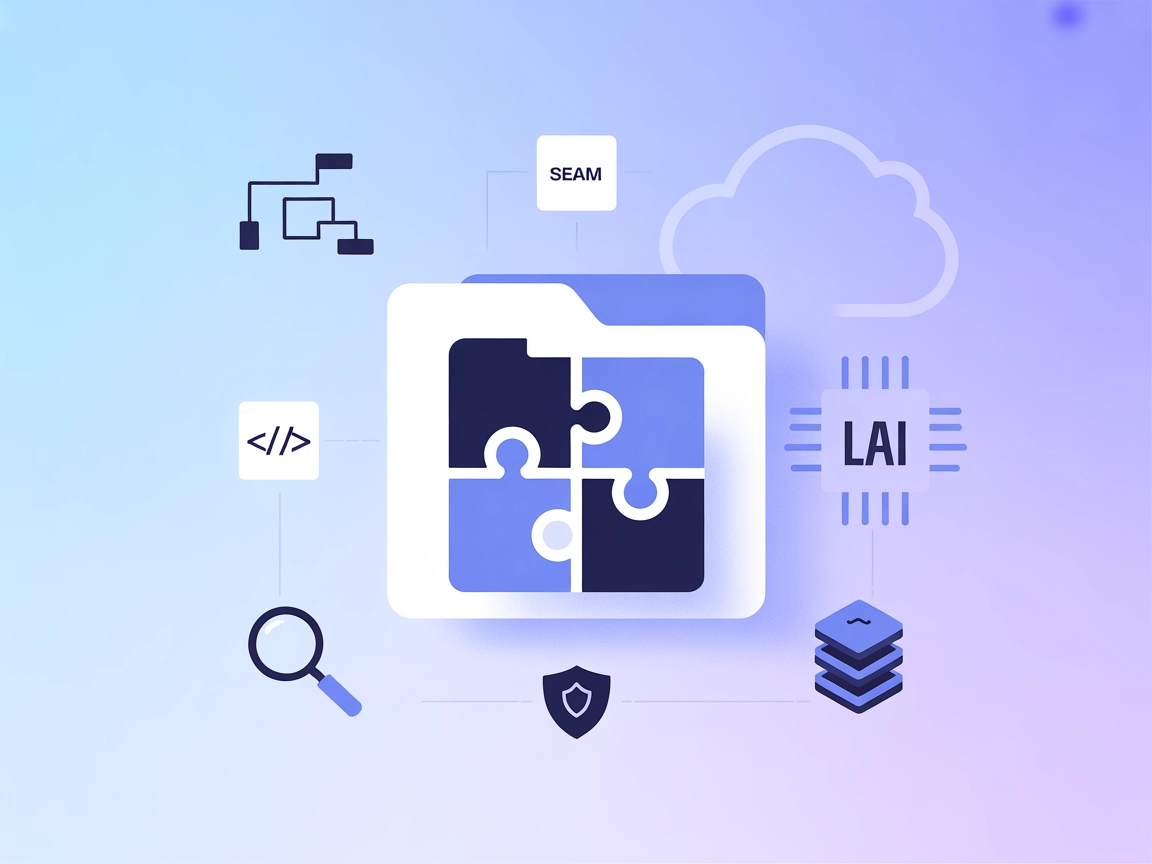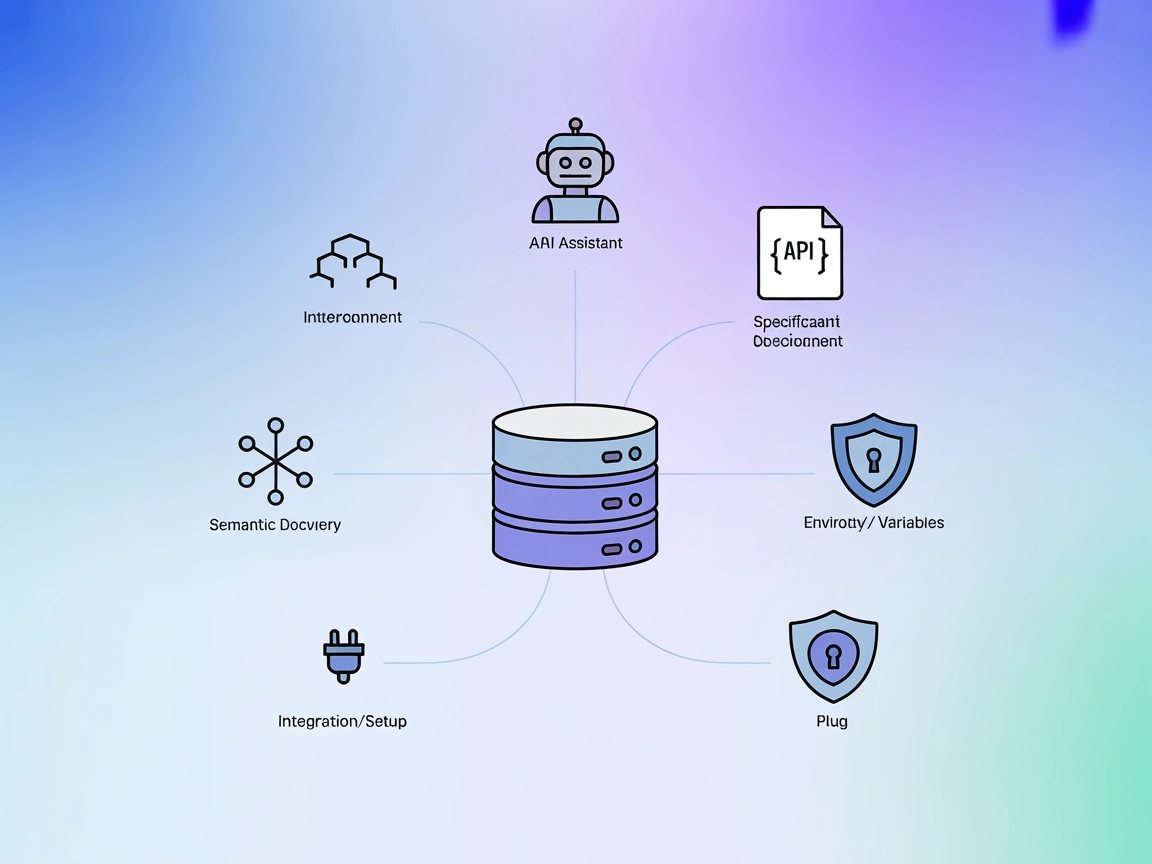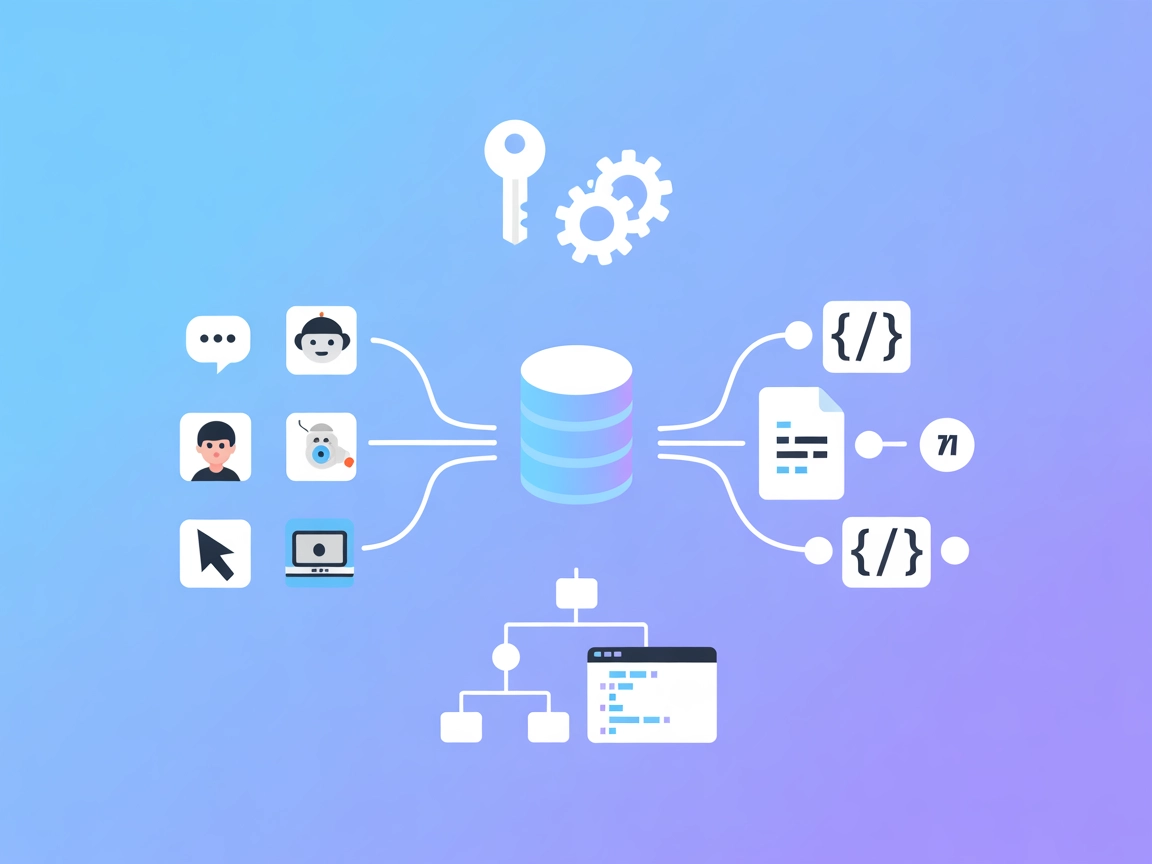
OpenAPI Schema MCP Server
The OpenAPI Schema MCP Server exposes OpenAPI specifications to Large Language Models, enabling API exploration, schema search, code generation, and security re...

Expose and explore OpenAPI/Swagger specifications as resources for programmatic access, endpoint discovery, and schema validation—empowering AI agents and developers to automate and streamline API integration workflows.
FlowHunt provides an additional security layer between your internal systems and AI tools, giving you granular control over which tools are accessible from your MCP servers. MCP servers hosted in our infrastructure can be seamlessly integrated with FlowHunt's chatbot as well as popular AI platforms like ChatGPT, Claude, and various AI editors.
The OpenAPI Schema Explorer MCP Server provides token-efficient access to OpenAPI/Swagger specifications through MCP Resources, enabling client-side exploration of API schemas. This server acts as a bridge between AI assistants and external API documentation, allowing tools and LLMs (Large Language Models) to programmatically query, read, and analyze API specifications. By exposing OpenAPI/Swagger specs as structured resources, it streamlines tasks such as endpoint discovery, parameter inspection, and schema validation, enhancing the development workflow for teams integrating or building upon third-party APIs. This server is particularly useful for developers and AI agents looking to automate API documentation analysis, improve code generation, or validate integration points in a scalable and standardized manner.
No explicit prompt templates are mentioned in the available repository files or documentation.
No explicit tools are listed in server.py or equivalent entrypoint files in the repository.
windsurf.config.json).{
"mcpServers": {
"openapi-schema-explorer": {
"command": "npx",
"args": ["@kadykov/mcp-openapi-schema-explorer@latest"]
}
}
}
Securing API Keys:
{
"mcpServers": {
"openapi-schema-explorer": {
"env": {
"API_KEY": "${OPENAPI_SCHEMA_EXPLORER_API_KEY}"
},
"inputs": {
"api_key": "${OPENAPI_SCHEMA_EXPLORER_API_KEY}"
}
}
}
}
mcpServers section:{
"mcpServers": {
"openapi-schema-explorer": {
"command": "npx",
"args": ["@kadykov/mcp-openapi-schema-explorer@latest"]
}
}
}
Securing API Keys:
{
"env": {
"API_KEY": "${OPENAPI_SCHEMA_EXPLORER_API_KEY}"
},
"inputs": {
"api_key": "${OPENAPI_SCHEMA_EXPLORER_API_KEY}"
}
}
{
"mcpServers": {
"openapi-schema-explorer": {
"command": "npx",
"args": ["@kadykov/mcp-openapi-schema-explorer@latest"]
}
}
}
Securing API Keys:
{
"env": {
"API_KEY": "${OPENAPI_SCHEMA_EXPLORER_API_KEY}"
},
"inputs": {
"api_key": "${OPENAPI_SCHEMA_EXPLORER_API_KEY}"
}
}
{
"mcpServers": {
"openapi-schema-explorer": {
"command": "npx",
"args": ["@kadykov/mcp-openapi-schema-explorer@latest"]
}
}
}
Securing API Keys:
{
"env": {
"API_KEY": "${OPENAPI_SCHEMA_EXPLORER_API_KEY}"
},
"inputs": {
"api_key": "${OPENAPI_SCHEMA_EXPLORER_API_KEY}"
}
}
Using MCP in FlowHunt
To integrate MCP servers into your FlowHunt workflow, start by adding the MCP component to your flow and connecting it to your AI agent:

Click on the MCP component to open the configuration panel. In the system MCP configuration section, insert your MCP server details using this JSON format:
{
"openapi-schema-explorer": {
"transport": "streamable_http",
"url": "https://yourmcpserver.example/pathtothemcp/url"
}
}
Once configured, the AI agent is now able to use this MCP as a tool with access to all its functions and capabilities. Remember to change “openapi-schema-explorer” to whatever the actual name of your MCP server is and replace the URL with your own MCP server URL.
| Section | Availability | Details/Notes |
|---|---|---|
| Overview | ✅ | |
| List of Prompts | ⛔ | No templates found in repo/docs |
| List of Resources | ✅ | OpenAPI specs, endpoints, schema definitions |
| List of Tools | ⛔ | No explicit tools found in repo entrypoint |
| Securing API Keys | ✅ | Env and inputs configuration shown |
| Sampling Support (less important in evaluation) | ⛔ | No reference found |
Based on the above, OpenAPI Schema Explorer MCP provides useful documentation and setup, but lacks explicit prompt and tool definitions, which limits its out-of-the-box agentic versatility. It’s a solid resource-focused MCP, but may need further development or documentation for advanced use.
Rating: 6/10
| Has a LICENSE | ✅ (MIT) |
|---|---|
| Has at least one tool | ⛔ |
| Number of Forks | 2 |
| Number of Stars | 19 |
It is an MCP Server that provides token-efficient, structured access to OpenAPI/Swagger specifications as MCP Resources. It enables AI agents and developers to programmatically explore, validate, and automate API documentation tasks.
Use cases include API documentation exploration, endpoint discovery, schema validation, automated code generation, and supporting the setup of automated testing by exposing API schemas and parameters.
No explicit prompt templates or agent tools are defined in the current version. The server focuses on exposing resources from OpenAPI/Swagger specifications.
It exposes OpenAPI/Swagger spec documents, API endpoint listings, and schema/component definitions, making it easy to retrieve and analyze API structure and data types.
You should use environment variables in your MCP server configuration for API keys. Refer to each platform’s example in the setup instructions for secure key handling.
Yes, it is open source and licensed under MIT.
Empower your AI agents and workflows with programmatic access to OpenAPI/Swagger documentation and schema resources. Automate integration, validation, and code generation with FlowHunt.

The OpenAPI Schema MCP Server exposes OpenAPI specifications to Large Language Models, enabling API exploration, schema search, code generation, and security re...

Connect AI assistants like Claude to any API with an OpenAPI (Swagger) spec. The Any OpenAPI MCP Server enables semantic endpoint discovery and direct API reque...

The OpenAPI MCP Server connects AI assistants with the ability to explore and understand OpenAPI specifications, offering detailed API context, summaries, and e...
Cookie Consent
We use cookies to enhance your browsing experience and analyze our traffic. See our privacy policy.